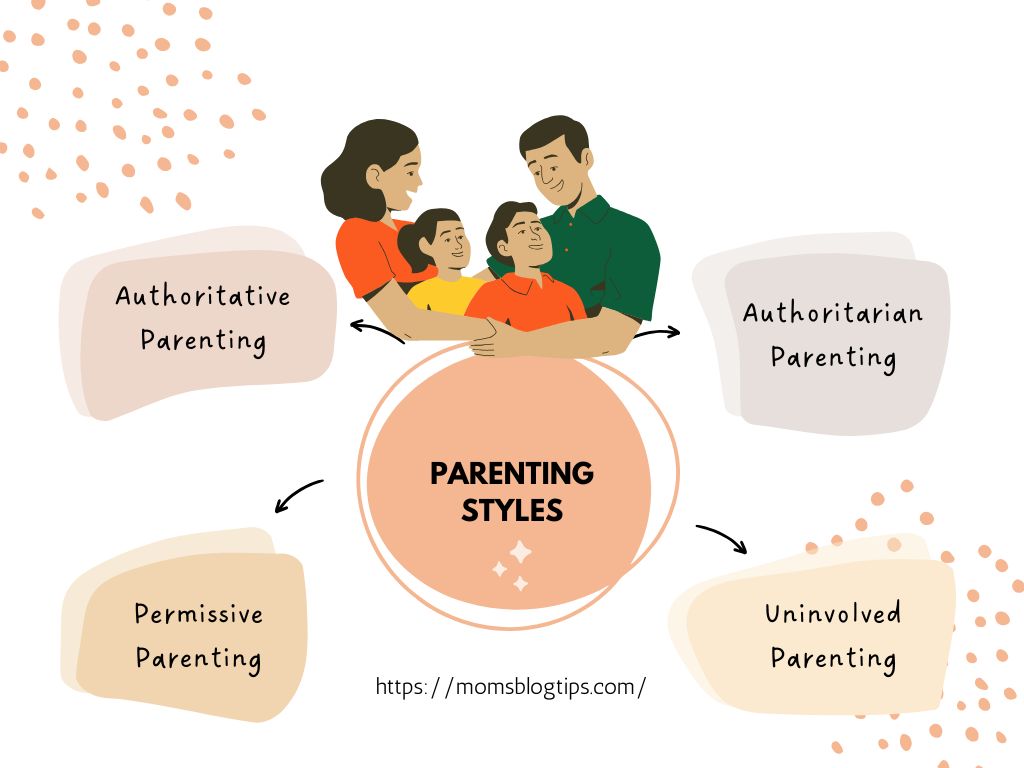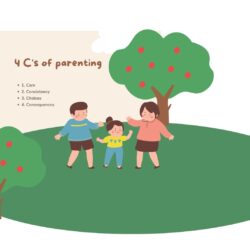The journey of parenthood is a beautiful and complex one, filled with moments of joy, laughter, and inevitable challenges. One of the most crucial decisions parents face is choosing a parenting style – a way of interacting with and guiding their children that shapes their development and well-being. But with so much information available, it can be overwhelming to navigate the different parenting styles and understand their impact.

This guide delves into the fascinating world of parenting styles, offering a comprehensive overview of the four main approaches: authoritarian, authoritative, permissive, and uninvolved. By understanding the characteristics, strengths, and weaknesses of each style, you can make informed choices that align with your values and create a nurturing environment for your child to thrive.
Authoritarian Parenting
Imagine a household where strict rules reign supreme, with clear expectations and consequences for disobedience. This is the essence of authoritarian parenting. Parents set inflexible guidelines, demand unquestioning obedience, and prioritize discipline above all else.

Strengths:
- Clear structure and expectations: Children know what’s expected and the boundaries they cannot cross.
- Strong sense of responsibility: The emphasis on discipline can instil a sense of responsibility and accountability.
- Improved self-control: Following strict rules can help children develop self-control and manage their impulses.
Weaknesses:
- Limited autonomy and choice: Children may feel stifled by the lack of freedom and control over their lives.
- Reduced emotional connection: The focus on obedience can hinder the development of a warm and nurturing parent-child relationship.
- Potential for rebellion: Overly strict rules can lead to resentment and rebellion in children, especially during adolescence.
Authoritative Parenting
This style strikes a balance between providing clear expectations and fostering open communication. Authoritative parents set reasonable rules, explain their rationale, and are responsive to their child’s needs and feelings.

Strengths:
- Healthy self-esteem: Children feel valued and respected, leading to higher self-esteem and confidence.
- Social solid skills: Learning to negotiate and discuss rules fosters communication and social skills.
- Improved emotional well-being: The warm and supportive environment promotes emotional security and well-being.
Weaknesses:
- Can be time-consuming: Explaining and negotiating rules takes time and effort, which busy parents may not always have.
- Requires consistency: Maintaining clear and consistent expectations can be challenging, especially with multiple children.
- May not always be effective: This style may not be suitable for all children, especially those with strong personalities or behavioural challenges.
Read more here about: Authoritative Parenting
Permissive Parenting
This approach prioritizes freedom and self-expression with minimal rules and consequences. Permissive parents are often lenient, allowing their children to make their own choices and learn from their mistakes.

Strengths:
- Fosters independence and creativity: Children have the freedom to explore and develop skills at their own pace.
- Stronger parent-child bond: The relaxed atmosphere can create a close and trusting relationship with children.
- Better self-regulation skills: Learning from natural consequences can help children develop self-regulation skills.
Weaknesses:
- Lack of structure and guidance: Children may struggle with self-discipline and responsibility without clear boundaries.
- Academic and social challenges: Lack of guidance can impact academic performance and social interactions.
- Potential for impulsivity and risk-taking: Unrestricted freedom can lead to impulsive behaviour and risky choices.
Uninvolved Parenting
This style is characterized by minimal involvement in a child’s life. Uninvolved parents may be physically or emotionally distant, providing little guidance, support, or emotional connection.

Strengths
- Independence: Children raised by uninvolved parents may develop a strong sense of independence and self-reliance. They may learn to make their own decisions and solve problems on their own.
- Creativity: Children may have more freedom to explore their interests and develop their own unique talents and skills.
- Resilience: Children may develop resilience and the ability to cope with challenges on their own.
Weaknesses:
- Low self-esteem and emotional insecurity: Lack of attention and affection can lead to emotional problems and low self-esteem.
- Academic and social difficulties: Children may struggle in school and social settings due to inadequate support and guidance.
- Increased risk of behavioural problems: The absence of boundaries and clear expectations can lead to behavioural issues and substance abuse.
Remember
- No single style is perfect: Every child is different, and the most effective parenting style is one that adapts to their individual needs and temperament.
- Balance is crucial: The best approach often lies in finding a balance between the different styles and adapting them to your values and circumstances.
- Seek professional help: If you’re struggling to find the right approach or facing specific parenting challenges, don’t hesitate to seek guidance from a therapist, counsellor, or parenting expert.
Final Words
Parenting is a journey of constant learning and adaptation. By understanding the different parenting styles and their potential impact, you can make informed choices that create a nurturing environment for your child to flourish.





